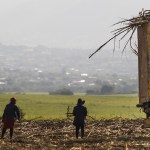SPONSORED CONTENT
Building towards the future of pension saving in SA

The Treasury has long been looking at ways to encourage, even enforce, retirement savings. One option is to create a system similar to the British system built up over the last decade. But, says Jonathan Sierra, Product Specialist: Employee Benefits at 10X Investments, while there are obvious benefits, South Africa has its own special set of circumstances that must be taken into account.
The Treasury laid out some of the criteria for a mandatory retirement savings system in its 2014 Budget Update on retirement reforms. Primarily, it must be cost-effective, especially for low-income earners, and the administrative process should be simple and transparent.
Also, it must allow for sufficient early access to help vulnerable workers during periods of financial need. This requirement may be the reason the idea was put on hold for so many years: it has become feasible with the introduction of the two-pot system.
To this we would add that it needs to operate at scale to achieve the economies and effectiveness Treasury seeks; have strong internal governance focused on managing conflicts and putting savers’ interests first; as well as be able to engage effectively with members, many of whom may be financially illiterate.
In its 2021 discussion paper, Treasury asked for input on this, and how it can best be implemented.
Employers would not have to establish new funds. Employees could be enrolled into existing funds in South Africa’s well-established industry, or a new national fund could be set up for the purpose, as happened in the UK.
The National Employment Savings Trust (Nest) was established as a workplace pension fund for companies who don’t run their own fund. It is open to any employer of any size and the self-employed. As of 30 June 2022, it served 11,4m members, managing £24 billion (R480 Billion) of assets.
The fund is highly diversified, with an emphasis on responsible and sustainable investing. Members can opt out of the default and choose either the Ethical, Sharia, Higher or Lower Risk Fund. Fees are low, and capped.
Much like RAs, members may not access their pension before the age of 55 unless they are unable to work due to illness, or suffer from a serious health condition.
The fund will eventually become self-financing as assets under management grow. The aim is to become a not-for-profit business, with any surpluses reinvested in the interests of scheme members.
When the UK launched auto-enrolment, their National Association of Pension Funds reported that the number one reason people would opt out was a lack of trust in the finance industry. Locally, we might add a lack of trust in government.
Getting this right would require incredible administrative competence, which is not a South African strong point, certainly not in the public sector. Although the GEPF is a massively large fund, it is managed as a defined benefit fund, has only 1,2m active members with 375,000 pensioners and beneficiaries. The fund serves only one employer, with automated deductions and a standard contribution regime.
This is vastly different from hosting thousands of different employers, and perhaps millions of members, potentially with irregular contributions going into individual investment portfolios, divided into two pots. Let’s not forget the requirement to facilitate withdrawals from one of the pots (the emergency pot).
The administrator of Nest is Tata Consultancy Services (TCS), a global leader in IT services, consulting and business solutions. As an insight to their service levels, customer calls are answered on average within 27 seconds. Getting TCS to replicate this in SA is, of course, an option but outsourcing the call centre to India is unlikely to fly here.
So, when Treasury poses the question in its discussion paper “Would a Nest-like scheme work in South Africa?” we would say only if it was administered by the private sector, by industry players who can bring their vast experience to this challenge.
It took six years to get Nest going in the UK and it seems unlikely that our government could get it done any quicker, but we cannot afford more long delays, a truth that 10X Investments annual Retirement Reality Report lays bare every year. South Africa needs quick wins on many fronts. These would be best achieved by starting with mandatory saving for all those in formal employment, relying on our well-established savings industry. The existing default portfolio requirements would provide a measure of protection against self-serving retirement interests, perhaps with a maximum charge restriction for low-income members.
As for those outside formal employment, the only realistic solution lies in formal financial education, because they will have to continue to take care of it themselves.
10X’s fifth annual Retirement Reality Report will be published on September 30. Tim Cohen will be hosting a Daily Maverick webinar with 10X and Rosemary Hunter, pensions, benefits and financial services attorney, to discuss the findings of the report on October 5. Register here. DM/BM
Jonathan Sierra, Product Specialist: Employee Benefits at 10X Investments

Disclaimer:
The content herein is provided as general information. It is not intended as nor does it constitute financial, tax, legal, investment, or other advice. 10X Investments is an authorised FSP (number 28250).
















 Become an Insider
Become an Insider
Comments - Please login in order to comment.